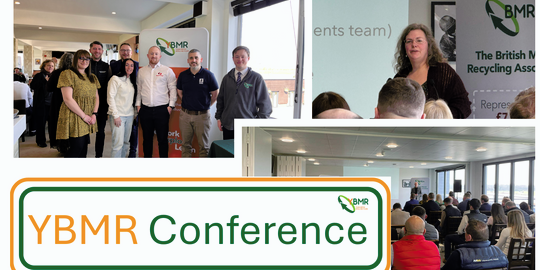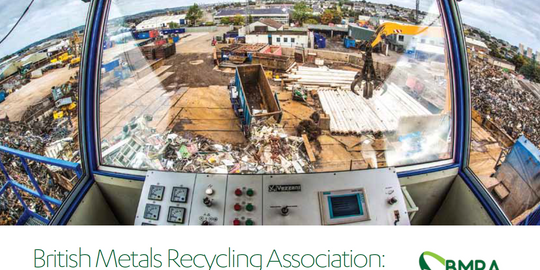Cash flow a widespread concern as business continues the rebuilding process
Throughout the COVID-19 pandemic, BIR has sought to chart the business impact of the virus around the globe. The feedback in this latest article has been provided by BIR Ambassadors, who combine many decades of recycling industry experience and who promote the interests of the world recycling organization in their own specific countries and regions.
On May 25, new COVID-19 cases in China totalled 11 - the lowest daily number since January this year. Although social distancing is required in factories and offices, China is steadily opening up its market and recycling companies are achieving operating rates of between 30% and 70%. The border with Russia is still closed; no interruptions have been reported in shipments of recycled materials.
In Hong Kong, the government’s systematic controls imposed on airport visitors, businesses and the public since the end of January have led to a situation where no new COVID-19 cases are being reported and a decision has been made to lift the curfew on bars, cinemas and beauty clinics with effect from May 29. While some scrap operations are closed, most recycling businesses are in operation; however, scrap generation has been perhaps 30-40% below normal levels. Imports and exports via all shipping lines are normal and without restriction.
In Taiwan too, no new cases of COVID-19 have been noted for three weeks and the country appears to be functioning quite well. Scrap processors are in operation but business levels are down by 30-40%. In contrast, many travel and entertainment-related businesses are facing closure.
Many Malaysians commute daily to Singapore to work in its yards and in other industries. The first phase of Singapore’s safe reopening will begin on June 2, with Malaysia extending its movement and business curbs until June 9. Any Malaysian worker entering Singapore must quarantine themselves for 14 days at a government facility - a requirement that not many workers are willing to meet. In the meantime, generation of scrap is described as minimal.
All eyes are on this first phase of reopening as its effectiveness will dictate the timing of the second phase and beyond. Amid substantial if cautious optimism, there is also plenty of interest in what happens in Japan where the state of emergency in Tokyo and four other remaining areas was lifted on May 25.
The markedly different situation in India is described as “very critical”, as relaxation of lockdown restrictions has led to an increase in COVID-19 cases. Although a significant proportion of businesses have resumed, sales and cash flow remain major issues. Many operators are said to be depending on payment for exports because no payments are being received from local industry. Importers are suffering a heavy demurrage and detention burden, with reports that some shipping lines are taking almost a week for delivery but then are approaching customers for the detention costs.
In Europe, Germany is showing much more confidence with regard to the COVID-19 situation; the state of Thuringia, for example, has announced that it will end both the obligatory wearing of face coverings and the limit on the number of people allowed to gather together within two weeks.
Many insurance and investment companies, as well as other service-orientated businesses, have observed during the pandemic that it has been possible to work almost as productively from home as from an office. Therefore, real estate companies are now expecting a drop in demand for office space over the coming years as companies look to reduce costs by letting people work from home.
The automotive industry, a key sector of the German economy, has resumed production of passenger cars but at a low level thus far, not only because companies do not want to risk the health of their workers but also because they realize demand for new vehicles will not be as high as before the pandemic. Germany is experiencing its largest decline in output since the crisis in 2008, and the country’s GDP fell 2.3% in the first quarter of 2020.
By April 26, a total of 751,000 companies had registered short-time working for up to 10 million employees; however, not all of these companies thus far have been using the short-time option.
After almost two months of lockdown in France, economic life has been resuming step by step since May 11 while respecting health protection requirements; further reopening measures are expected to be implemented in the coming days. The country’s central bank estimates that GDP fell 6% in the first three months of the year - the French economy’s worst quarterly performance since 1945. Industry is gradually recovering and is now running at 60% of capacity, but the fear is that business bankruptcies will lead to many job losses. The short-term outlook is bleak and the uncertainty is total.
France’s automotive market slumped 88% in April. Dealerships and factories have reopened but the stock of unsold cars is piling up and this flagship French industry will struggle to survive without significant government support.
In the recycling sector, ferrous scrap supplies are 60 to 70% of the levels seen before sites were closed. Retail purchases and demolition scrap are at good levels but there is a lack of new industrial scrap. Incoming volumes of non-ferrous scrap are healthy, with satisfactory sales recorded mainly for copper but not, inevitably, for aluminium.
The situation in the UK is improving slightly. Lockdown restrictions have been loosened and people whose jobs can be performed while adhering to social distancing guidelines are being encouraged to return to work. “Non-essential” shops are due to reopen in England on June 15 so long as certain guidelines are met. Recycling yards are gradually reopening but volumes are still down.
In the Middle East, recycling businesses will generally resume in June but restrictions will prevent a rapid build-up of momentum; some considerable time may be needed, it is argued, for volumes to return to viable levels. Some yards will opt to remain closed in the face of very high operating costs and impracticably low inflows of material.
Saudi Arabia has confirmed that its curfew will be lifted on June 21, with business to reopen gradually but amid restrictions. A gradual reopening will also apply to Kuwait after mid-June. The lockdown has ended in Lebanon but restrictions on movements remain very tight.
In the UAE, the process of easing restrictions began on April 24 and a further relaxation was introduced on May 27. Almost all commercial and private sector activities have been allowed to resume with 30% of their staff, provided that precautions such as social distancing and the wearing of masks are followed at all times. Almost all scrap yards are open but are operating at lower capacities because manufacturing, construction and demolition activity is substantially below pre-COVID levels, thus negatively affecting availability of material. Scrap arisings are well down and volumes across the country are, on average, at around 30% of the norm; however, it is thought that the latest easing of restrictions may boost scrap availability. By declaring waste management to be an essential service, the UAE government has facilitated the movement of municipal scrap.
As reported by BIR (see news dated May 14), the UAE government imposed a four-month restriction on exports of ferrous scrap and recovered paper with effect from May 15. Domestic mills are foreseeing a reduction in local scrap prices.
Hopes are expressed in the UAE that a gradual relaxation of the lockdown in India may help in freeing containers from congested ports as well as in improving cash flow.



